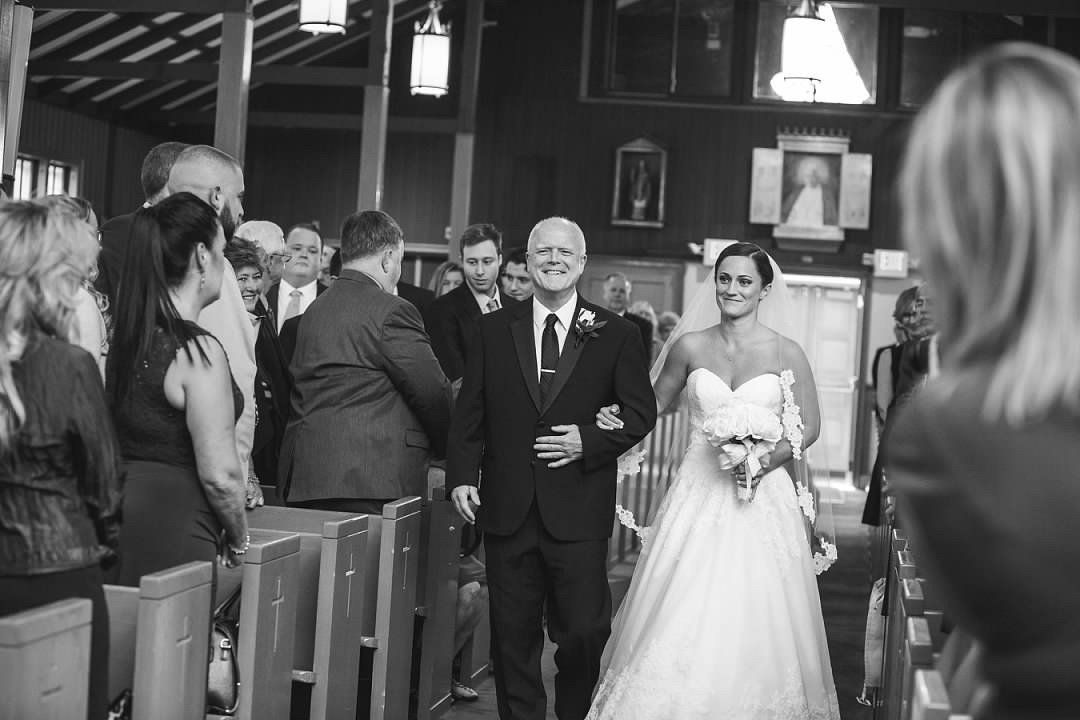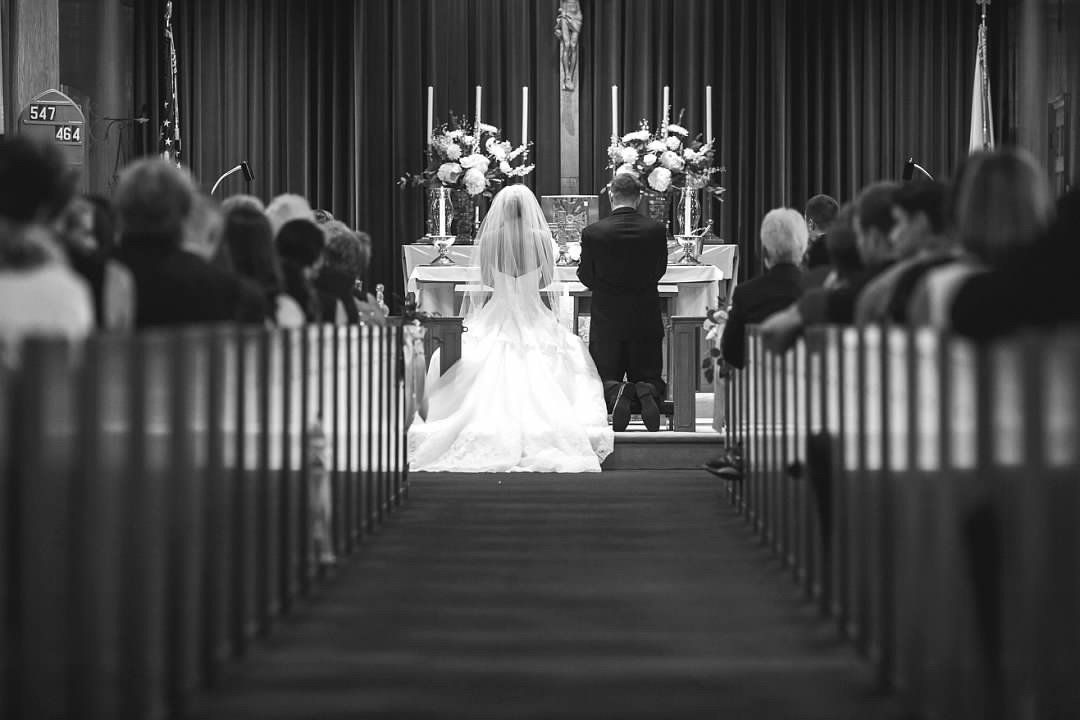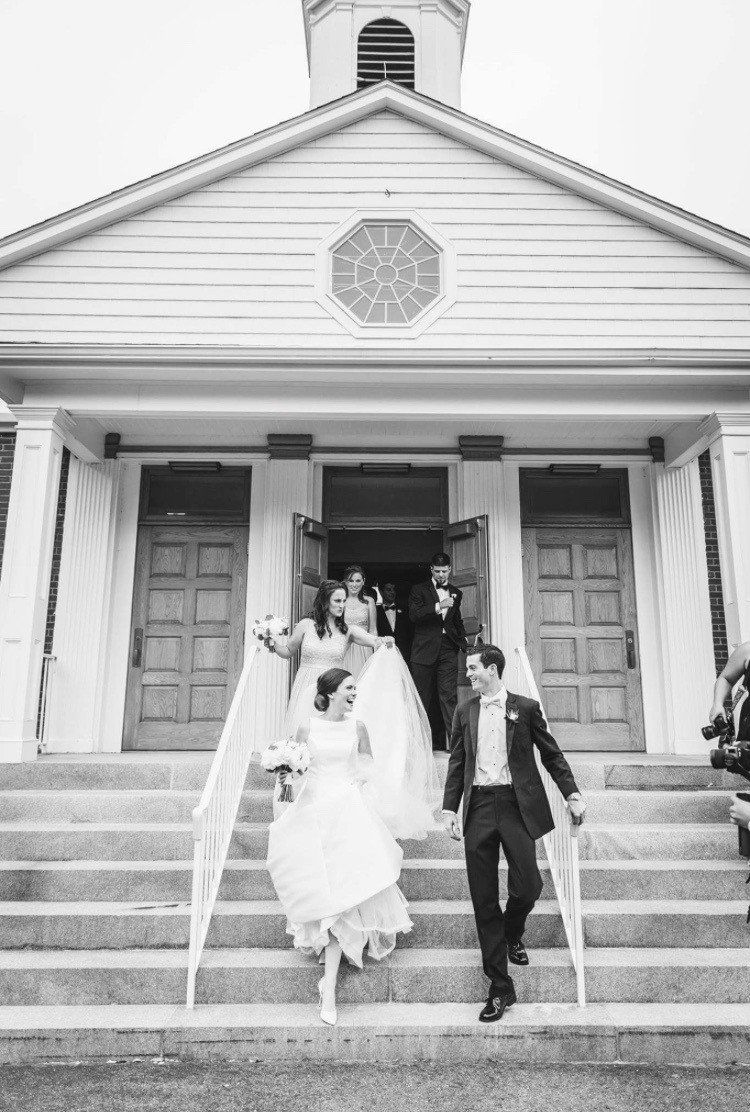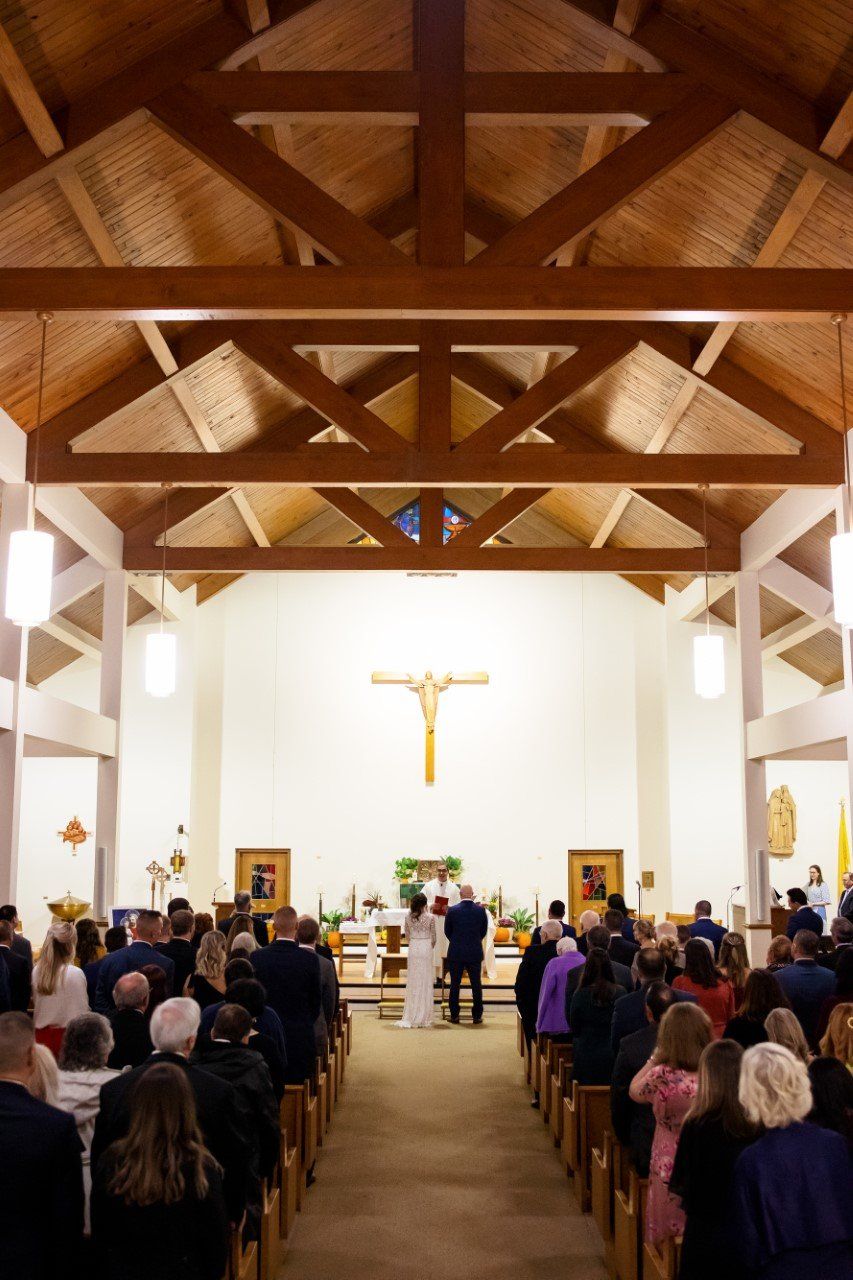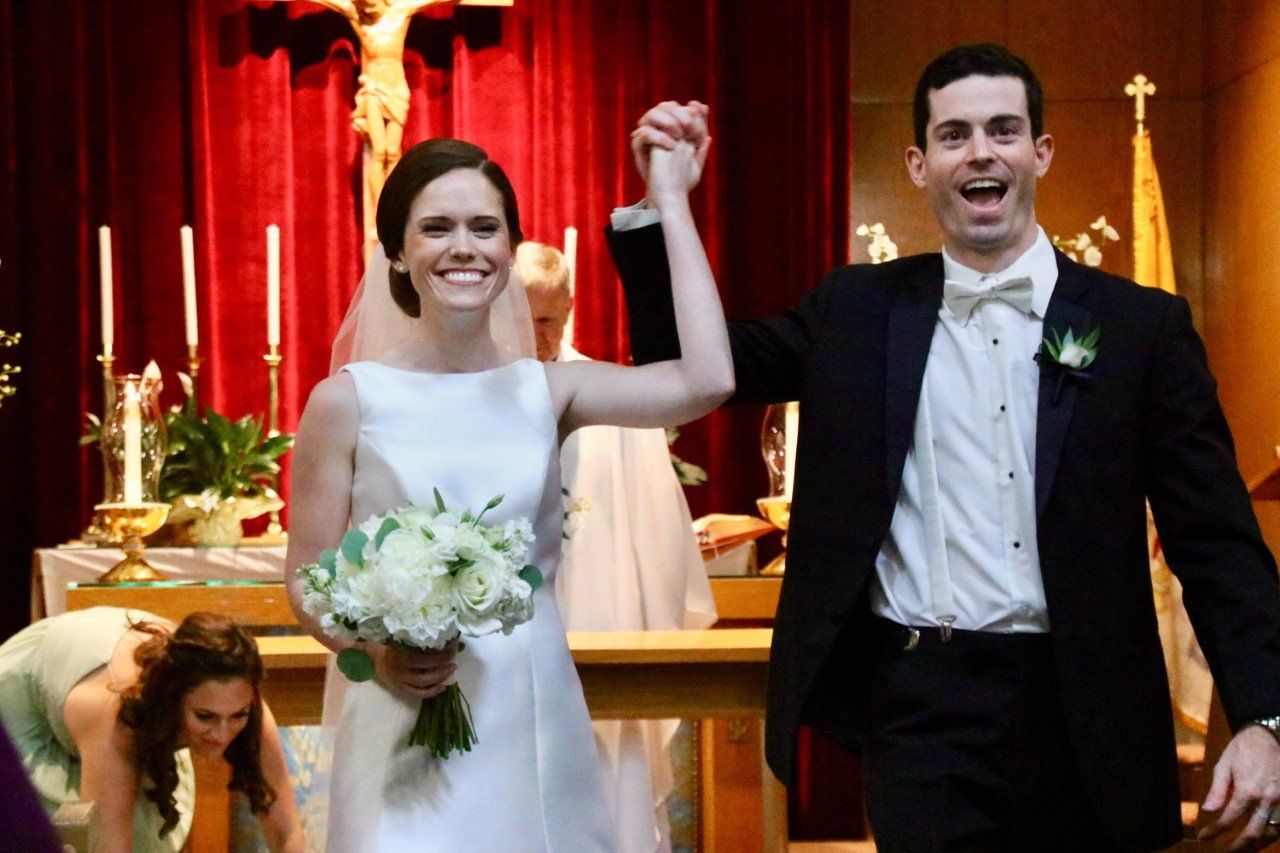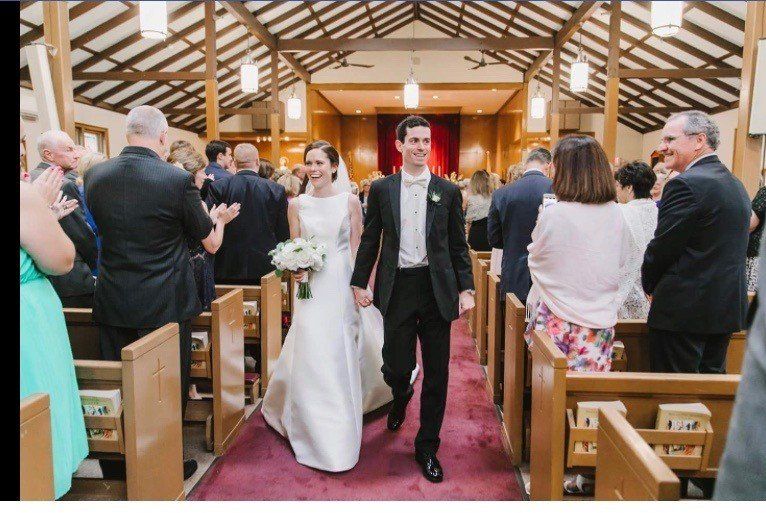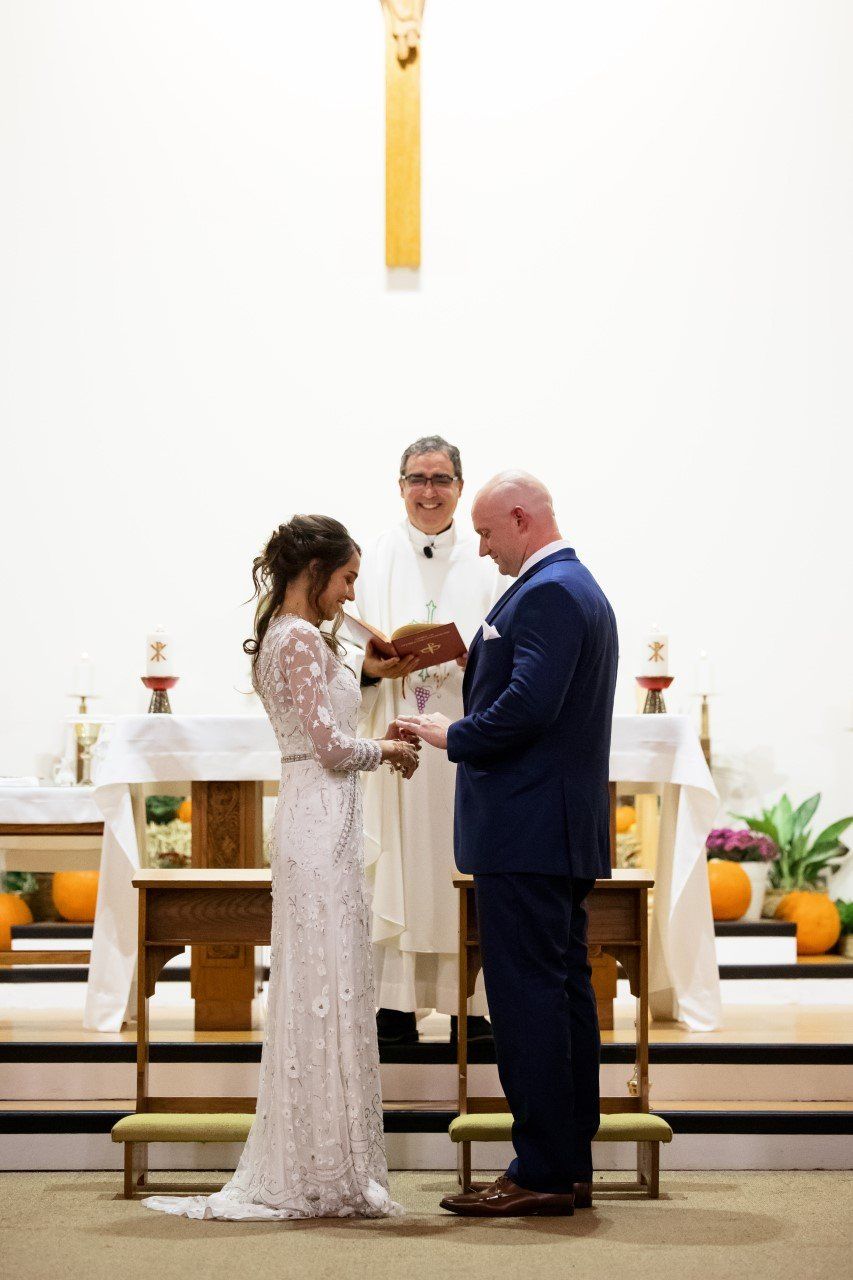Holy Matrimony
God created man and woman out of love and commanded them to imitate his love in their relations with each other. Man and woman were created for each other…Woman and man are equal in human dignity, and in marriage both are united in an unbreakable bond. (United States Catholic Catechism for Adults, Ch. 21, p. 279)
Thinking About Getting Married in one of the Catholic Parishes of the Blue Hills?
To speak to someone about the opportunity to be married in one of the parishes of the Blue Hills Collaborative, including marriage prep, details of the ceremony, the customary offering, etc, please call the Collaborative offices at 857-342-9500.
Our suggested freewill donation for a wedding at the Catholic Parishes of the Blue Hills is $500.
Marriage is a Covenant
Marriage Reflects the Holy Trinity
We believe that God exists in eternal communion. Together, Father, Son and Holy Spirit are united in one being with no beginning and no end. Human beings, likewise, were created by God in God’s image for the purpose of communion with another human being.
The Catechism of the Catholic Church states, “The Christian family is a communion of persons, a sign and image of the communion of the Father and the Son in the Holy Spirit” (CCC 2205). The Sacrament of Marriage is “unitive, indissoluble and calls us to be completely open to fertility.” Christian marriage at its finest is a reflection of God’s self-giving love expressed between the love of two people.
Frequently Asked Questions about the Sacrament of Matrimony
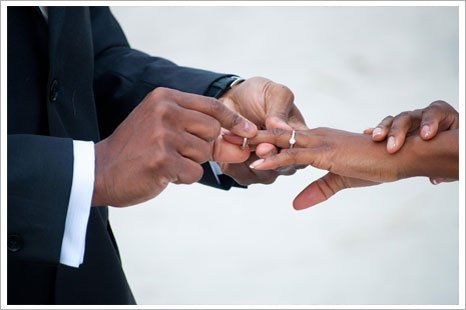
For information on “Transformed in Love,” the marriage preparation program sponsored by the Archdiocese of Boston, please click here.

